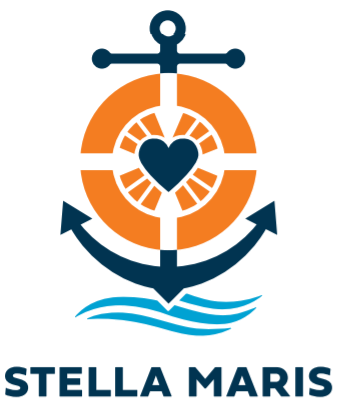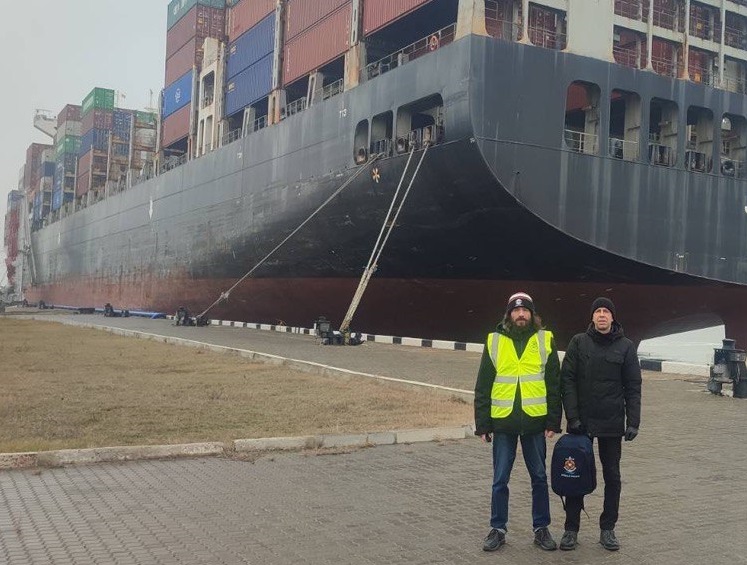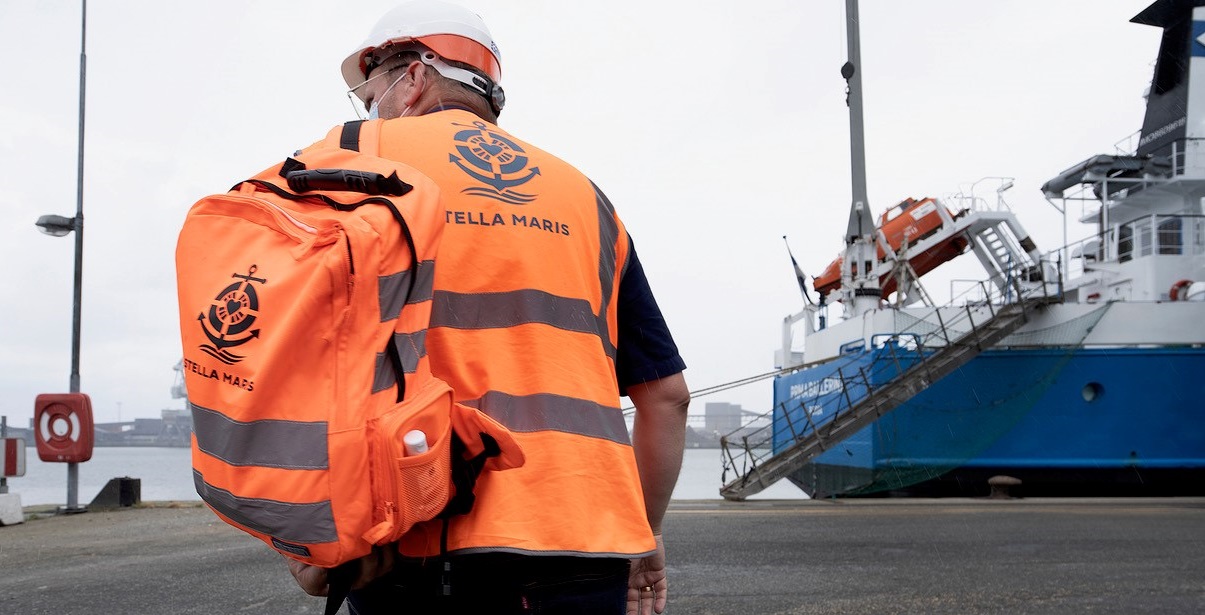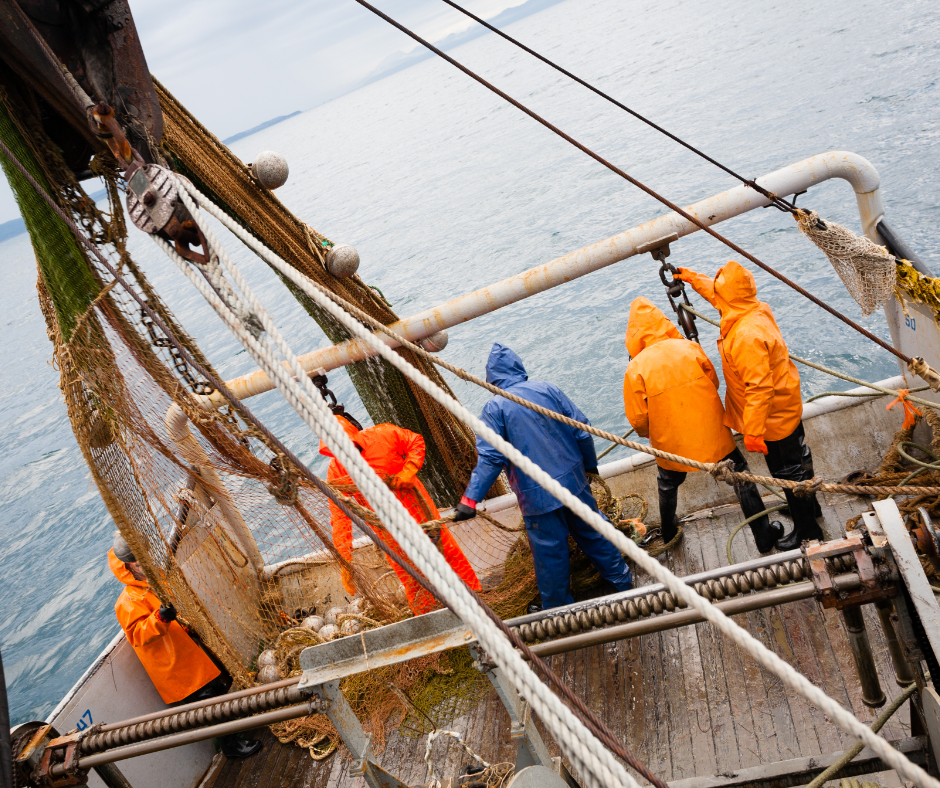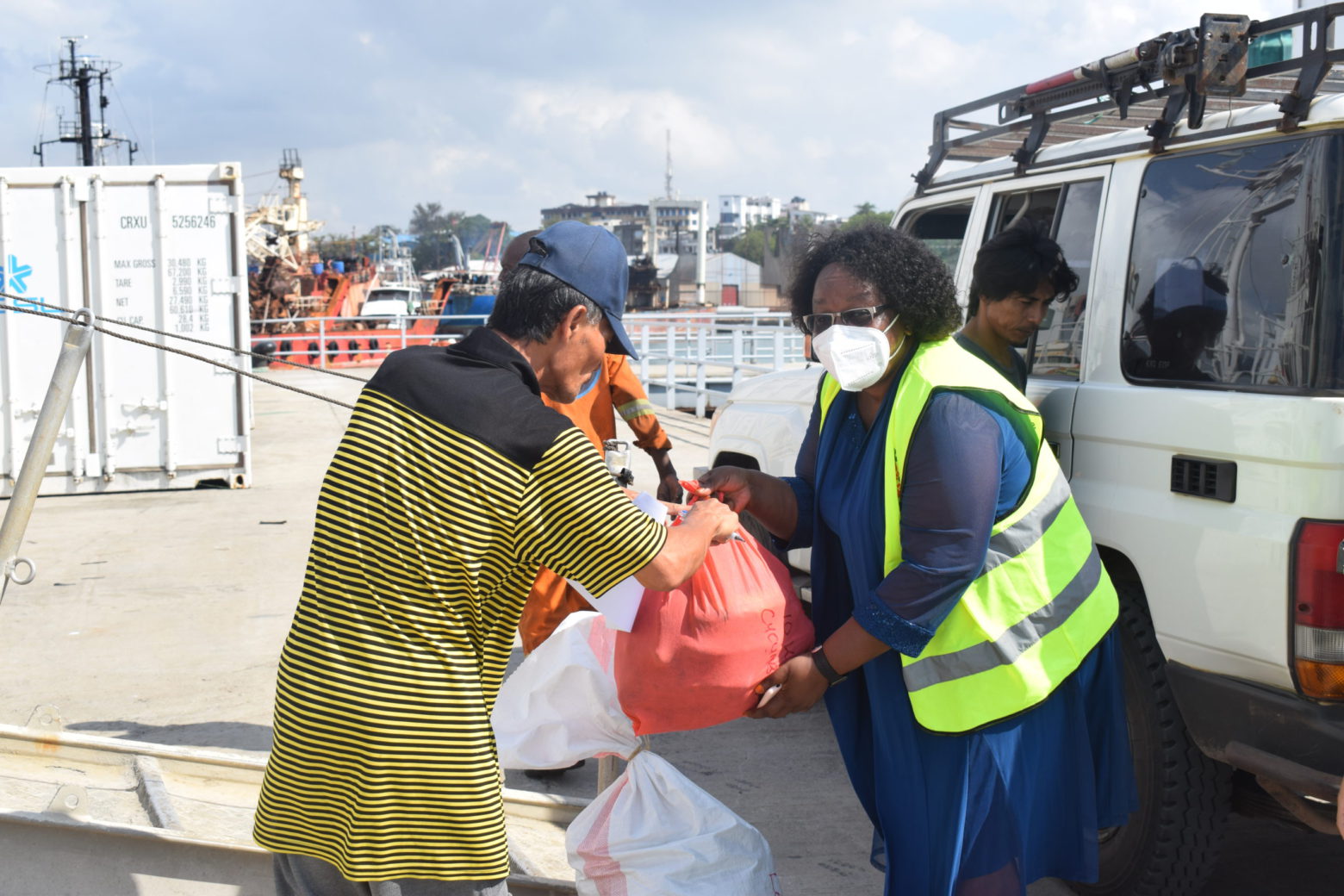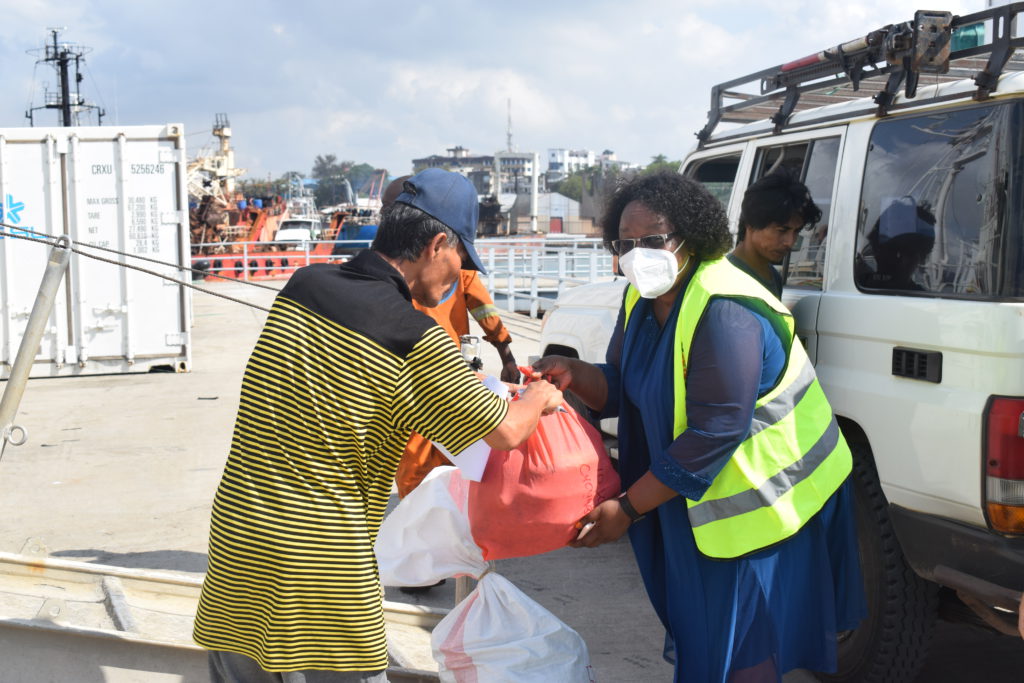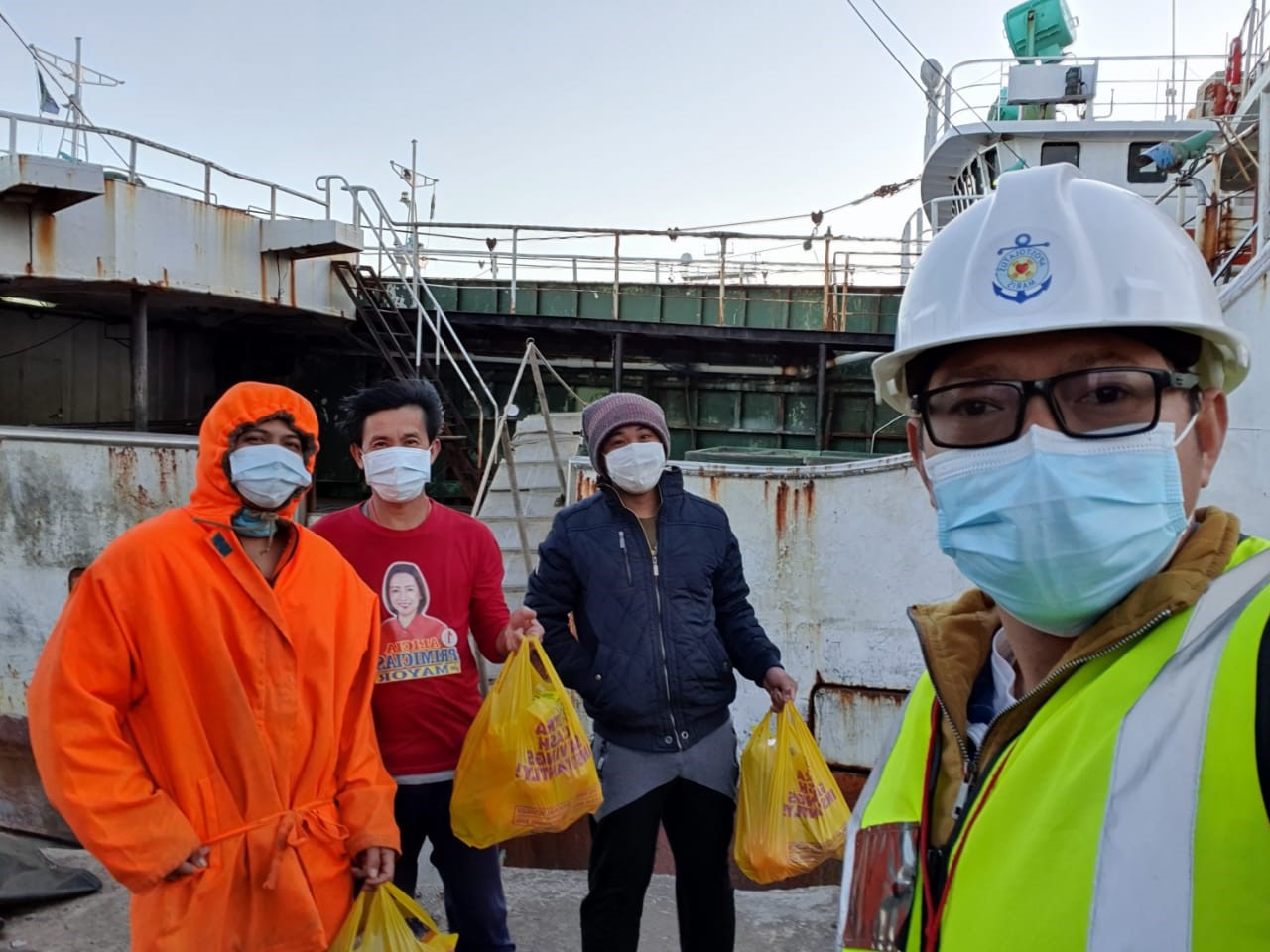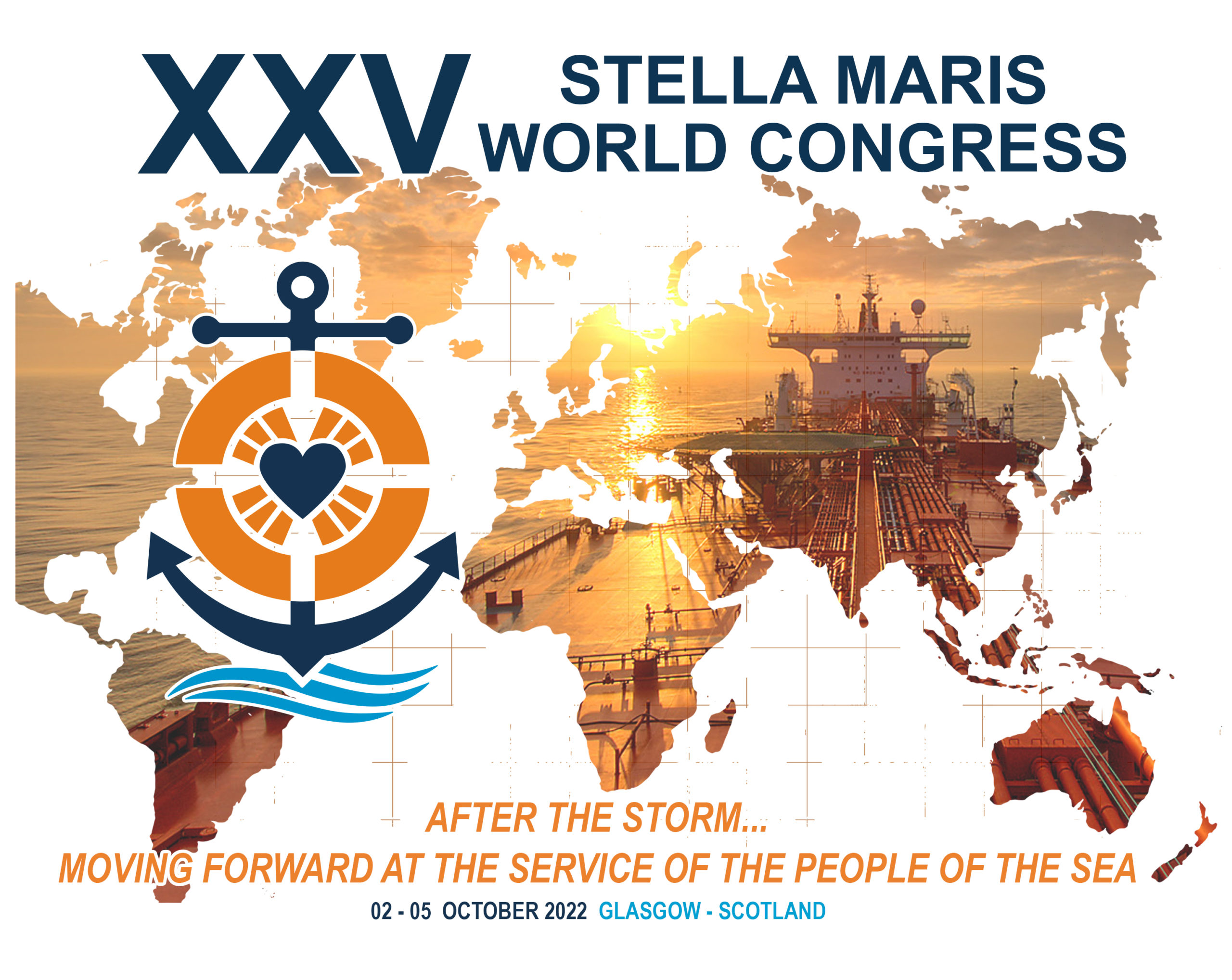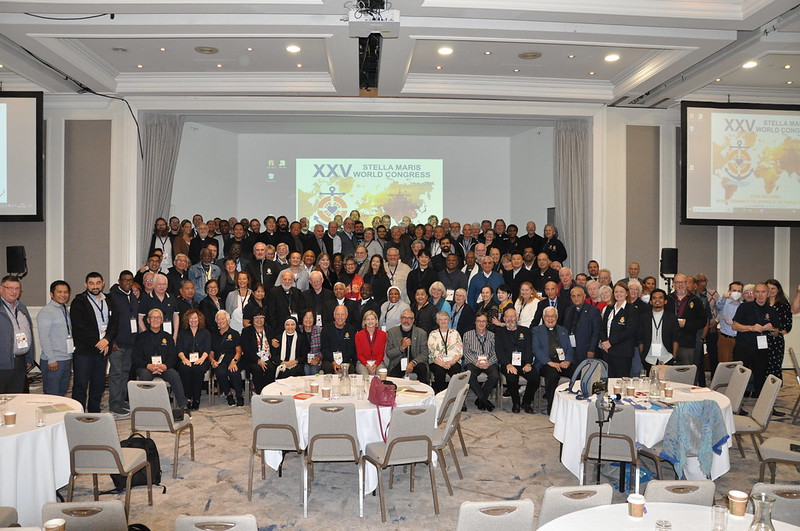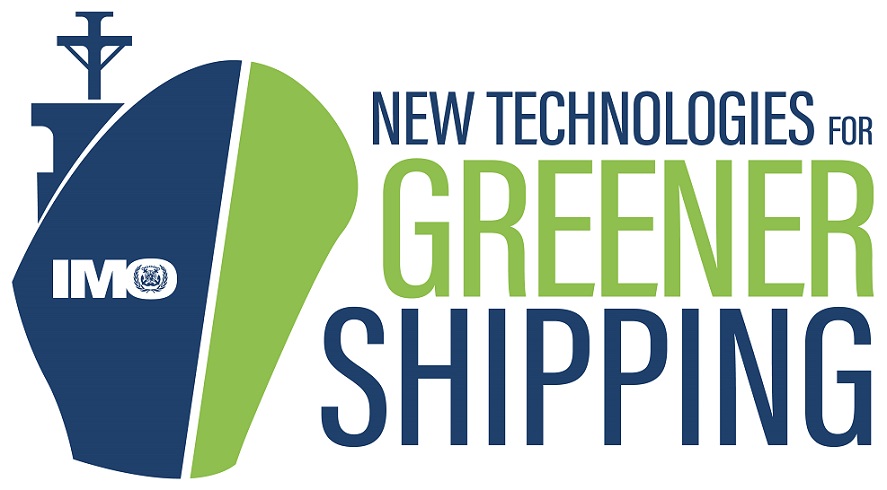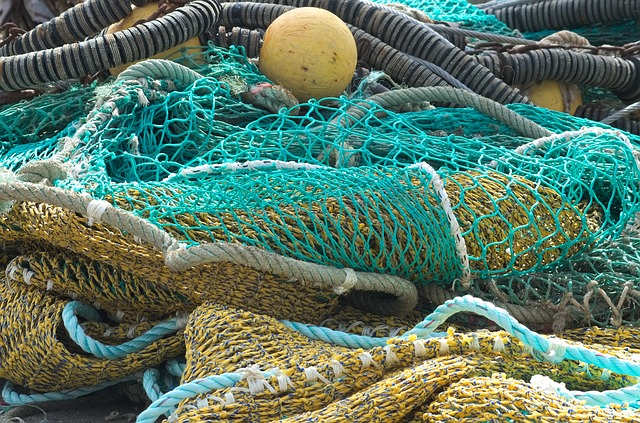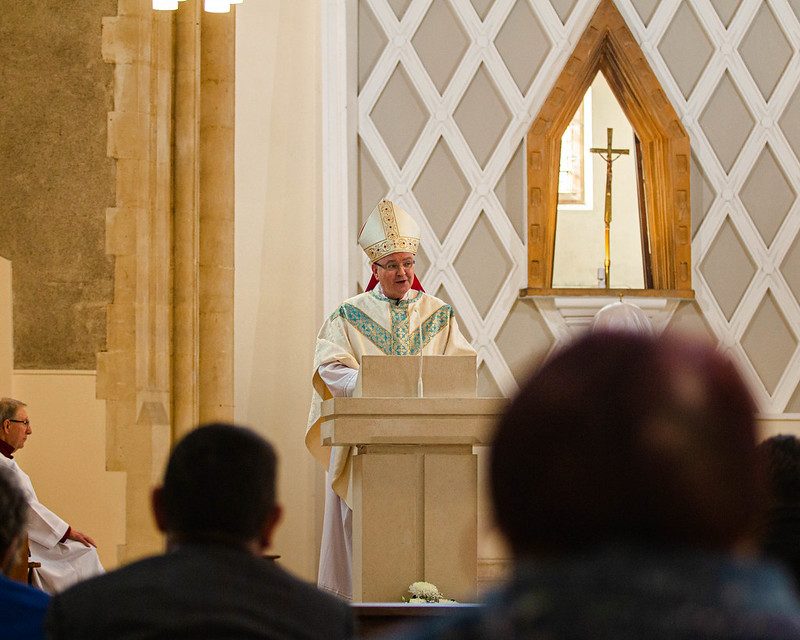
We held our first Stella Maris Mass of the year at Cardiff Cathedral on 8 February.
The main celebrant was Archbishop Mark O’Toole, Bishop of Menevia. He was joined by Fr Paul Osunyikanmi, Stella Maris regional port chaplain for Wales.
It was wonderful to see our port chaplains, ship visitors, volunteers, supporters and head office staff at the Mass and reception. Thanks everyone for your generosity.
Photos can be see on our Flickr site here https://www.flickr.com/photos/apostleshipofthesea/albums/72177720305989698
You can read Archbishop Mark’s homily below.
I am delighted to be with you today to thank God for the work of Apostleship of the Sea, and to celebrate this Mass in Honour of Our Lady, Star of the Sea. Your presence in ports throughout the world, your daily visits to ships docked in these ports and the fraternal welcome you give to the crews whilst in port are a visible sign of the Church’s concern for those who are far from home and who cannot receive ordinary pastoral care through a parish.
Personally, I have a soft spot for your work and mission. This is because my grandfather was something of a seafarer and fisherman. He was fortunate enough to have his own boat and grateful for the livelihood it provided, making a living in trading goods and supplies off the West coast of Ireland. Yet he knew the perils and changing temperaments of the open sea and always preserved a huge respect for its changing moods. As a family we always saw in this, something of the reality of human life with all its ups and downs.
It is one of the reasons I have always loved that Gospel passage of Jesus asleep in the boat. Sometimes in life it seems that Jesus is asleep amidst the storms that we may be facing. But He is with us, as He was with those earliest disciples. Jesus accompanied his disciples in their boat. He knows their experience from the inside as he helped them in their labours in fishing and making a living, and he calmed the storms. Thus, the Church also accompanies seafarers, taking care of the specific spiritual needs of those who for various reasons live and work in the maritime world. We gather today to unite ourselves with this intention and that we work to break down “the globalisation of indifference” of which the Holy Father has spoken.
Several years ago, I was able to witness a situation where local port Chaplains working for Stella Maris, helped release some Filipino migrants who were being exploited in a kind of modern slave labour on ships. They were far from home and loved ones, with little prospect of going home until the “whistle was blown” by those ship visitors.
Nowadays the world of seafaring, with its continual movement of people, has to take account of the complex effects of globalisation. Unfortunately, there are situations of injustice, especially when crews are subject to restrictions on disembarkation, abandoned along with the vessels on which they work, face the threat of piracy at sea or suffer as a result of exploitation and abuse. The vulnerability of seafarers must encourage even greater concern on the part of the Church. Their plight stimulates the maternal care of the Church and this is shown, through you, to those you meet in ports and on-board ships.
Many of the people you serve know this very well. They are at the mercy of forces much greater than themselves. Sometimes, those forces work for their good, and help them make a better life for their families at home. Sometimes they are not so good; they can be exploitative, even malevolent. It is one reason why it is good to meet today, in God’s Providence when the Church also keeps the memory of St Josephine Bakhita who knew what it was to be trafficked form one part of the world to another and who nevertheless, despite her suffering new the closeness of eh Lord and the loving care of the Church.
So, today we gather to pray for seafarers all over the world, and especially here in Wales. We know that they are some of the poorest, and most exploited, of workers and they need our support and our protection. In these two Dioceses with their long stretches of dramatic and beautiful coastline, we know something of the power and beauty of the sea. “Here your proud waves must break”, we echo with Job in that reading.
I think each of us knows something of the immensity and beauty of lvinig and working by the sea. Yet, living off the sea can be a somewhat precarious existence, true today as it has always been. It is Mary, under her title, Star of the Sea, who has found such a strong resonance in the hearts of so many believers who are seafarers or those who work or live by the sea. Our Blessed Lady knew what it was to be far from home and loved ones in a strange land.
Our Lady, Star of the Sea, bring us the light of your Son, and show His path in our dark world so that we may find our way to Him under your protective mantle. Protect seafarers and their families, and bring them consolation when they are separated. Help us to show your maternal care for all those who are need especially the poor and suffering.
Our Lady, Star of the Sea… Pray for us
+Mark O’Toole
Archbishop of Cardiff
Bishop of Menevia

